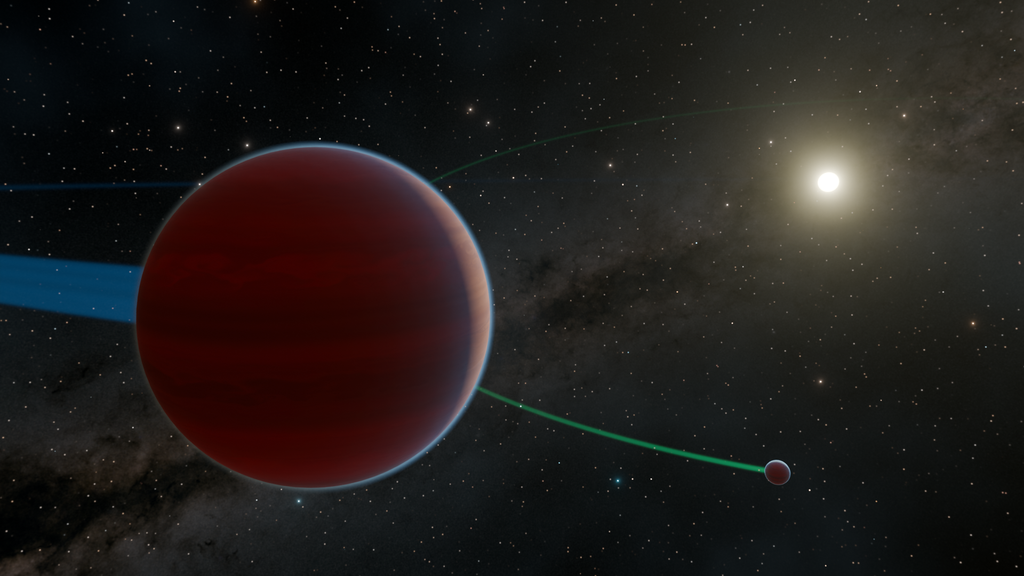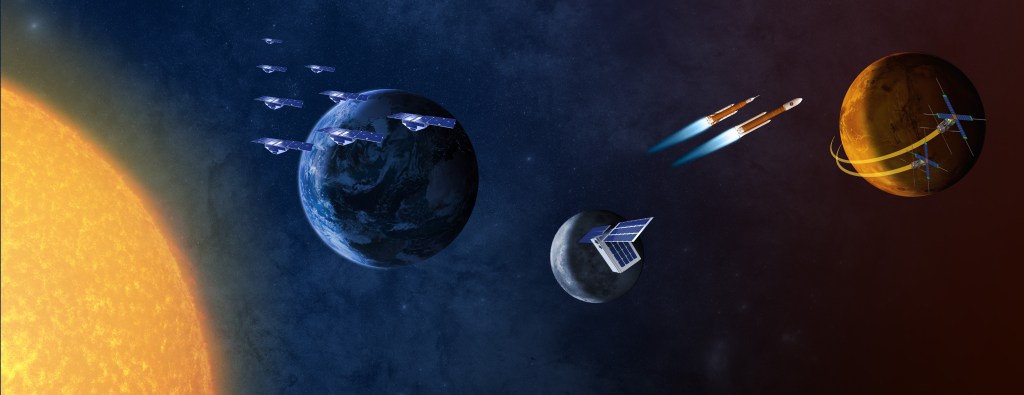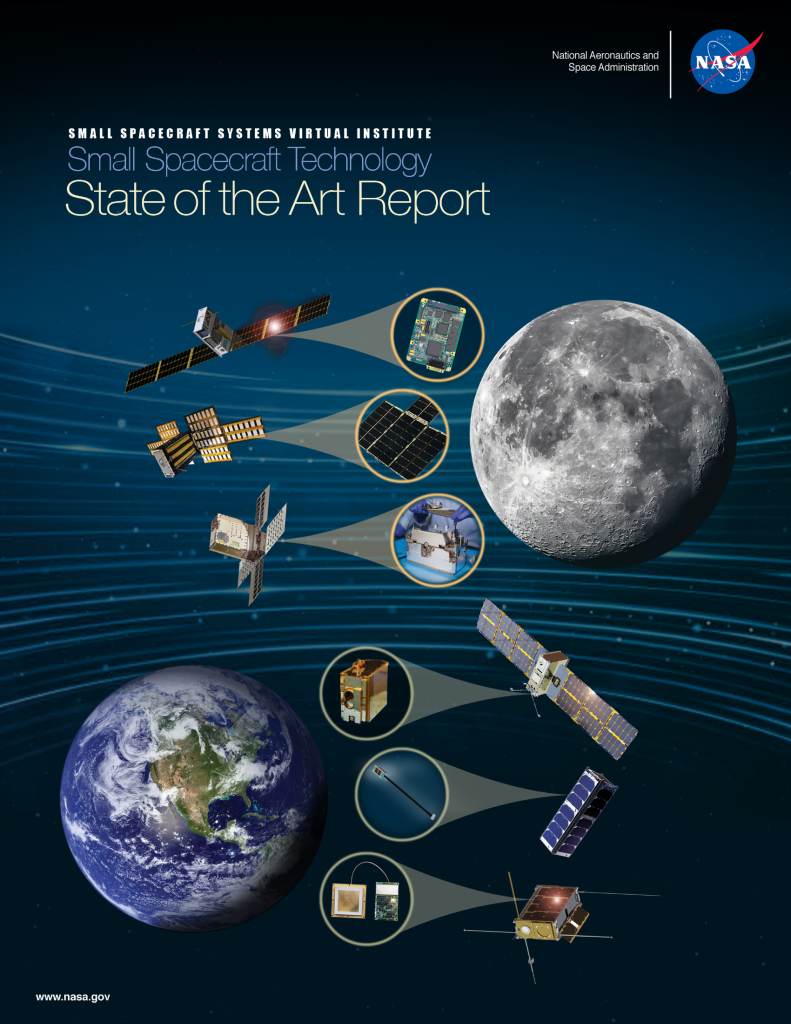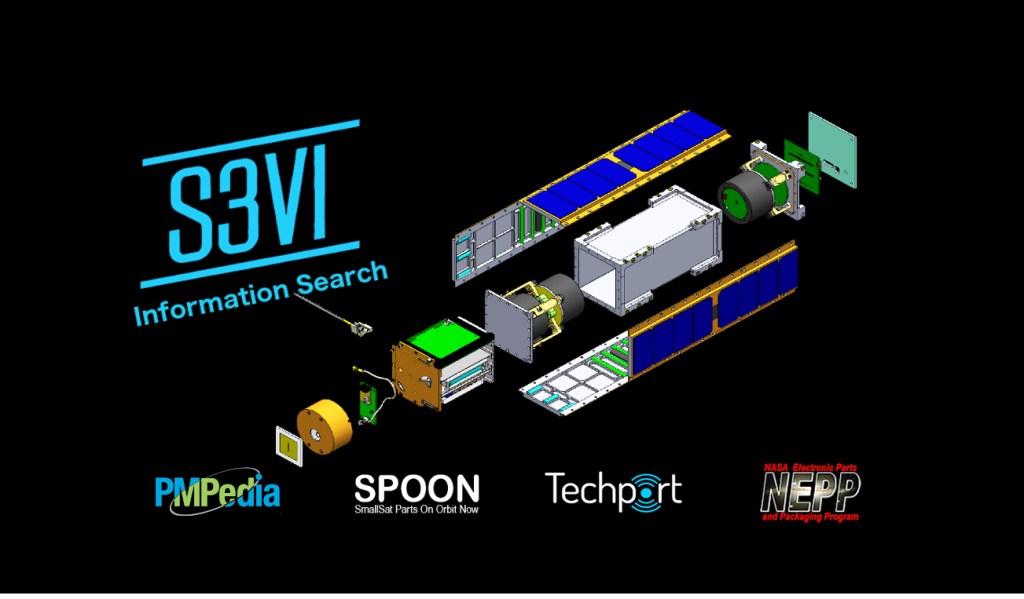Small Spacecraft Community of Practice
Subscribe to receive announcements for the Small Spacecraft Systems Virtual Institute’s (S3VI) monthly webinar series and quarterly newsletter here. We look forward to your participation!
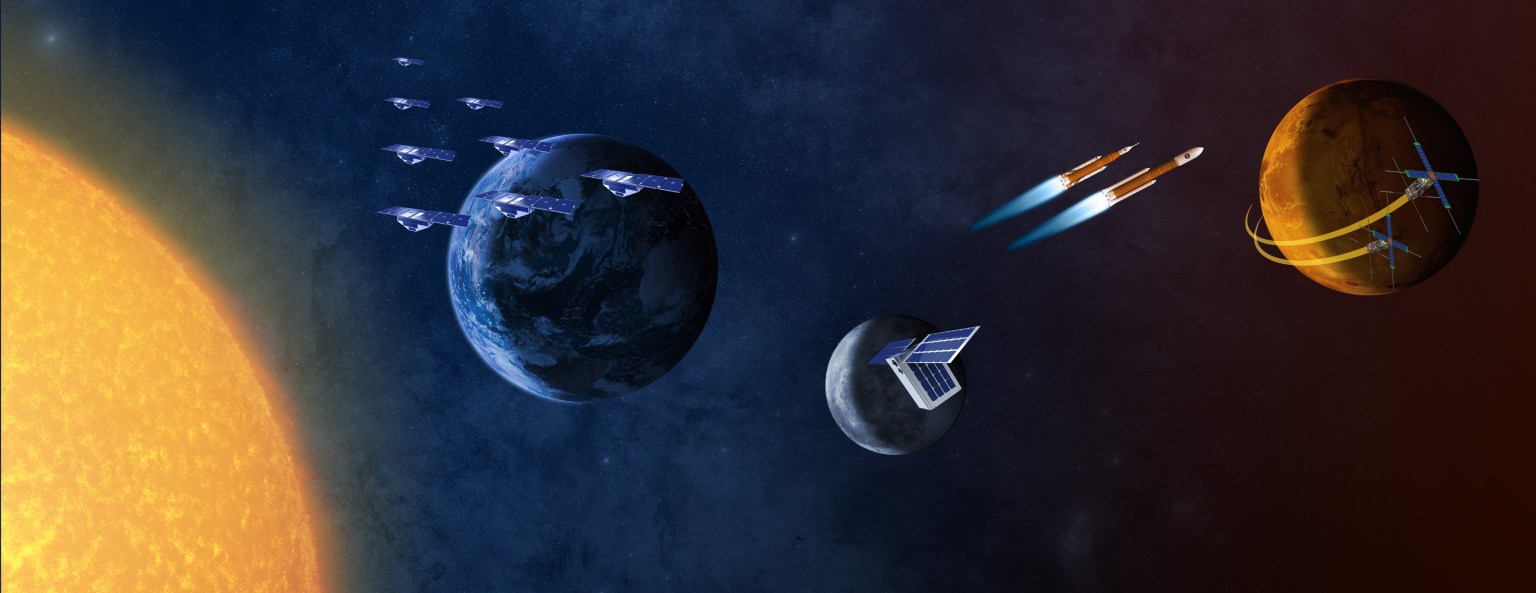
Monthly Webinar Series
| NASA and its partners are actively involved in all aspects of small spacecraft mission concept design, development and operations. We leverage our capabilities to enable small spacecraft as an innovation platform to contribute toward achievement of the agency’s goals for exploration and scientific return. The Small Spacecraft Systems Virtual Institute (S3VI) is chartered to advance clear communication, coordination, and consistent guidance regarding the agency’s small spacecraft activities, and to provide the US small spacecraft research community access to mission enabling information. The S3VI hosts a public webinar series to share information with the community at large on work NASA, partner agencies, and other members of the community are performing in the area of small spacecraft. Speakers from NASA centers, partner agencies and NASA-funded universities present on a wide variety of small spacecraft topics including all phases of mission design, development, and operations; regulatory and process-oriented requirements; exploration and scientific strategies, and opportunities for the community. The Mission Accomplished WebinarsSince May 2021 we’ve hosted a set of webinars called “Mission Accomplished”. With the steady emergence of small spacecraft missions that have successfully completed, or exceeded, their mission goals, these webinars capture and celebrate these amazing achievements so that we may learn from their accomplishments. With the “Mission Accomplished” webinars, we wish to celebrate the success of small spacecraft in helping to achieve science, exploration and technology goals for NASA. The current webinar series will expand to include webinars that highlight accomplishments of small spacecraft missions as they are employed broadly across all NASA mission areas. Speakers from NASA centers, partner agencies and NASA-funded universities will present on a wide variety of small spacecraft missions that have been successfully completed. |
Upcoming Webinars
Please check back soon for upcoming webinars.Within two weeks of the live event, the recorded webinar and associated presentation file will be posted in the Past Webinars section. |
Past Webinars
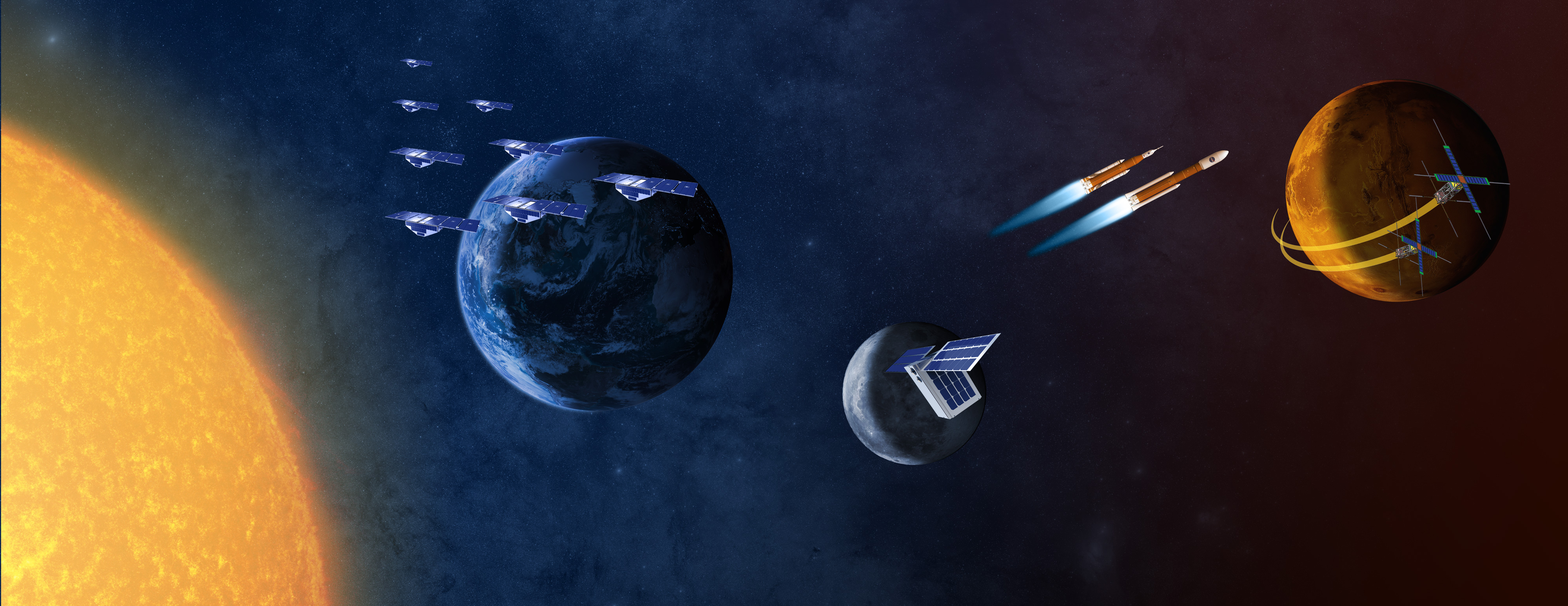 | May 14, 2025: Research and Development of Interstellar Solar Sails and the Quad Confinement ThrusterSpeakers: Debdut Sengupta and Aaron Knoll, Imperial College LondonWhile maturing SmallSat propulsion technologies through flight testing, engineers often need to make a tradeoff between risk conservativeness and failure tolerance. This talk discusses two technologies for which this tradeoff has had to be made: Solar Sails and the Quad Confinement Thruster. |
 | Jan 8, 2025: Lessons Learned from the LLITED MissionRebecca Bishop, The Aerospace CorporationThe Low-Latitude Ionosphere/Thermosphere Enhancements in Density (LLITED) CubeSat mission completed over a year of on-orbit operations this past fall. |
 | Nov 13, 2024: Lessons Learned from Executing End-of-Life Operations with 4 CubeSats until their Consecutive Re-Entries (BEESAT-2/-3/-4/-9)Anton Große Siestrup and Julian Harbeck, Technische Universitat BerlinThe BEESAT satellite class is a family of 1U CubeSats from Technische Universitat Berlin (TU Berlin) supported by the German Space Agency (DLR). After the funding for ongoing operations eventually ran out the newly formed Student Satellite Operation Team (Studops) took over the operations starting in 2021. |
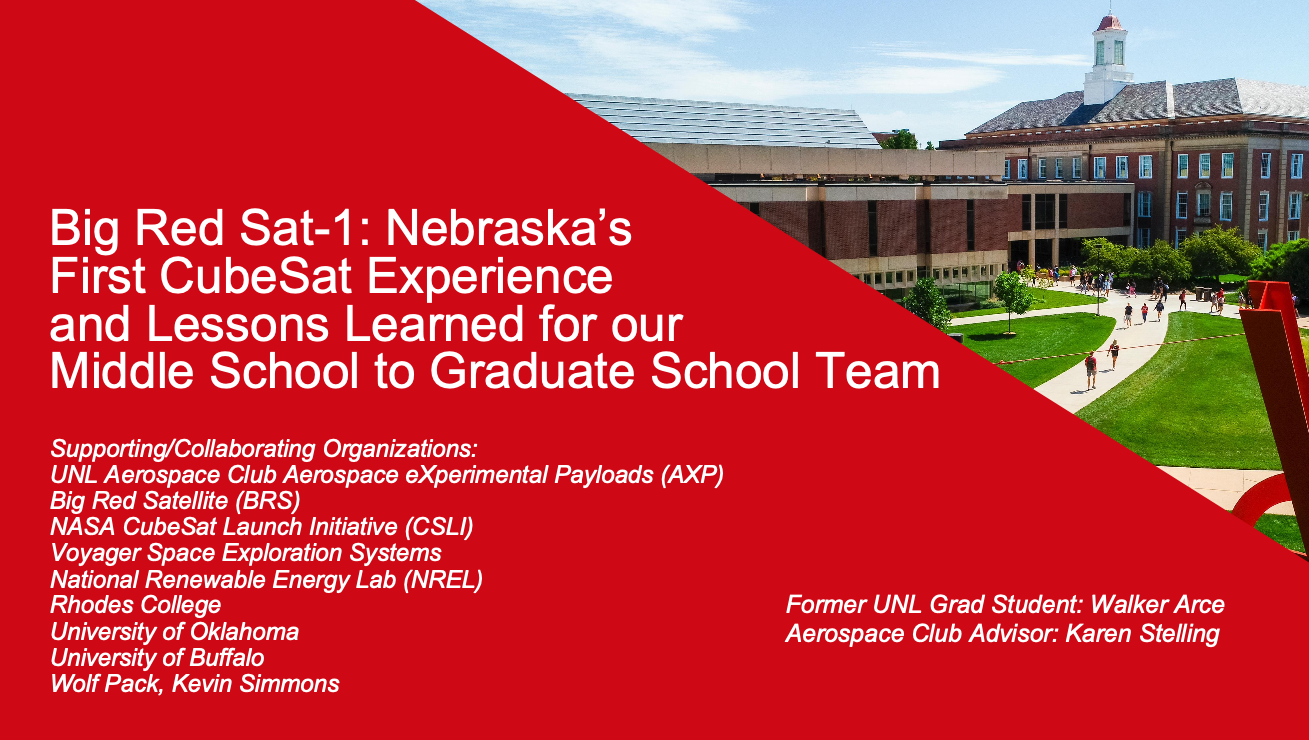 | Oct 23, 2024: Big Red Sat-1: Nebraska’s First CubeSat Experience and Lessons Learned for our Middle School to Graduate School TeamWalker Arce and Karen Stelling, University of Nebraska-LincolnThe University of Nebraska-Lincoln (UNL) initiated a CubeSat program in fall of 2020 which included Middle and High school students, as well as undergraduate and graduate students. |
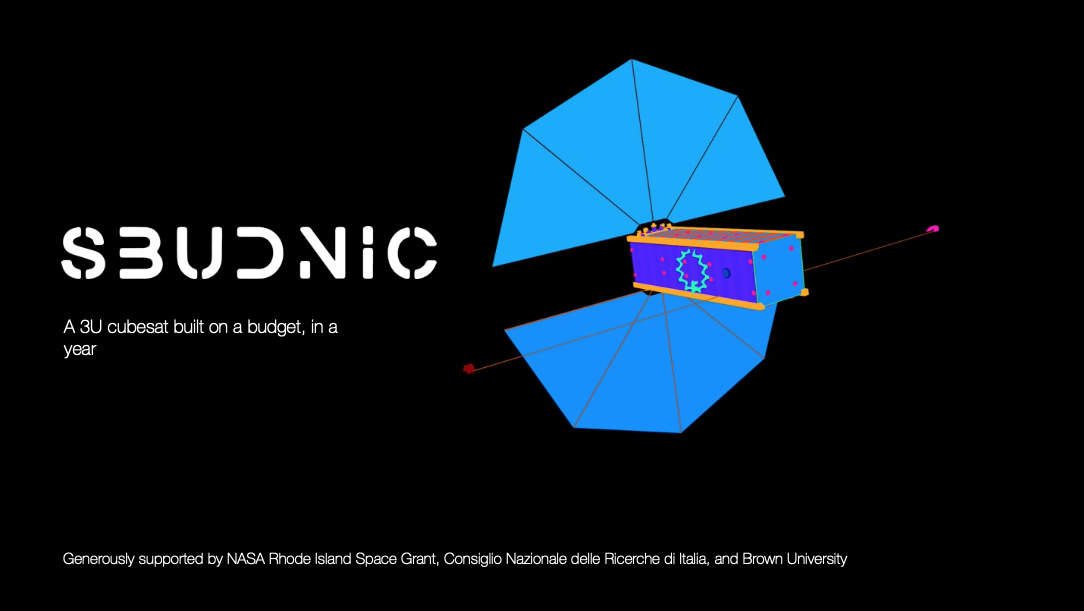 | Aug 14, 2024: SBUDNIC: A Model for Lightweight Program Management and Mission ExperimentationMarco Cross, Brown UniversityThe SBUDNIC CubeSat project, supported by NASA Rhode Island Space Grant Consortium, Brown University, and Consiglio Nazionale delle Ricerche di Italia, demonstrates a lightweight approach to payload and mission experimentation. |
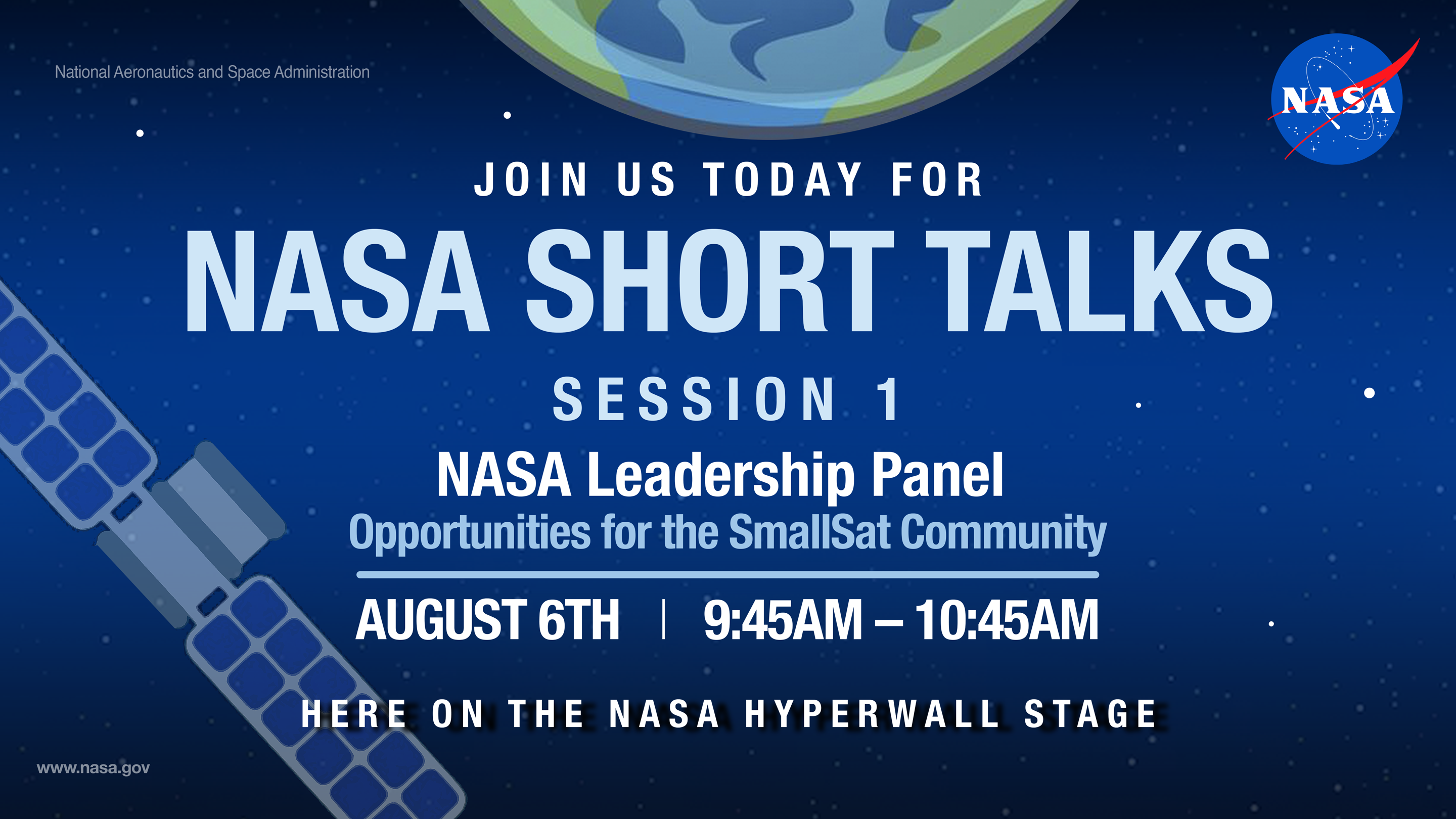 | Aug 6, 2024: NASA Short Talk Session: NASA Leadership Panel – Opportunities for the SmallSat Community2024 Small Satellite ConferenceJoin a panel of NASA leaders from the Science Mission Directorate, Space Technology Mission Directorate, and Space Operations Mission Directorate as they discuss how NASA collaborates to define capability needs and investment strategies that enable funding opportunities for the small spacecraft community. |
 | Aug 7, 2024: NASA Short Talk Session: Infusion Stories – Utilizing NASA’s Space Technology Mission Directorate Mechanisms to Develop Technology2024 Small Satellite ConferenceNASA program managers and investigators participate on a moderated panel and present lightning talks focused on infusion stories across NASA’s directorates and programs. Panelists participate in a discussion and provide examples on the use of NASA’s Space Technology Mission Directorate mechanisms to develop technology from early technology readiness levels to mission infusion. |
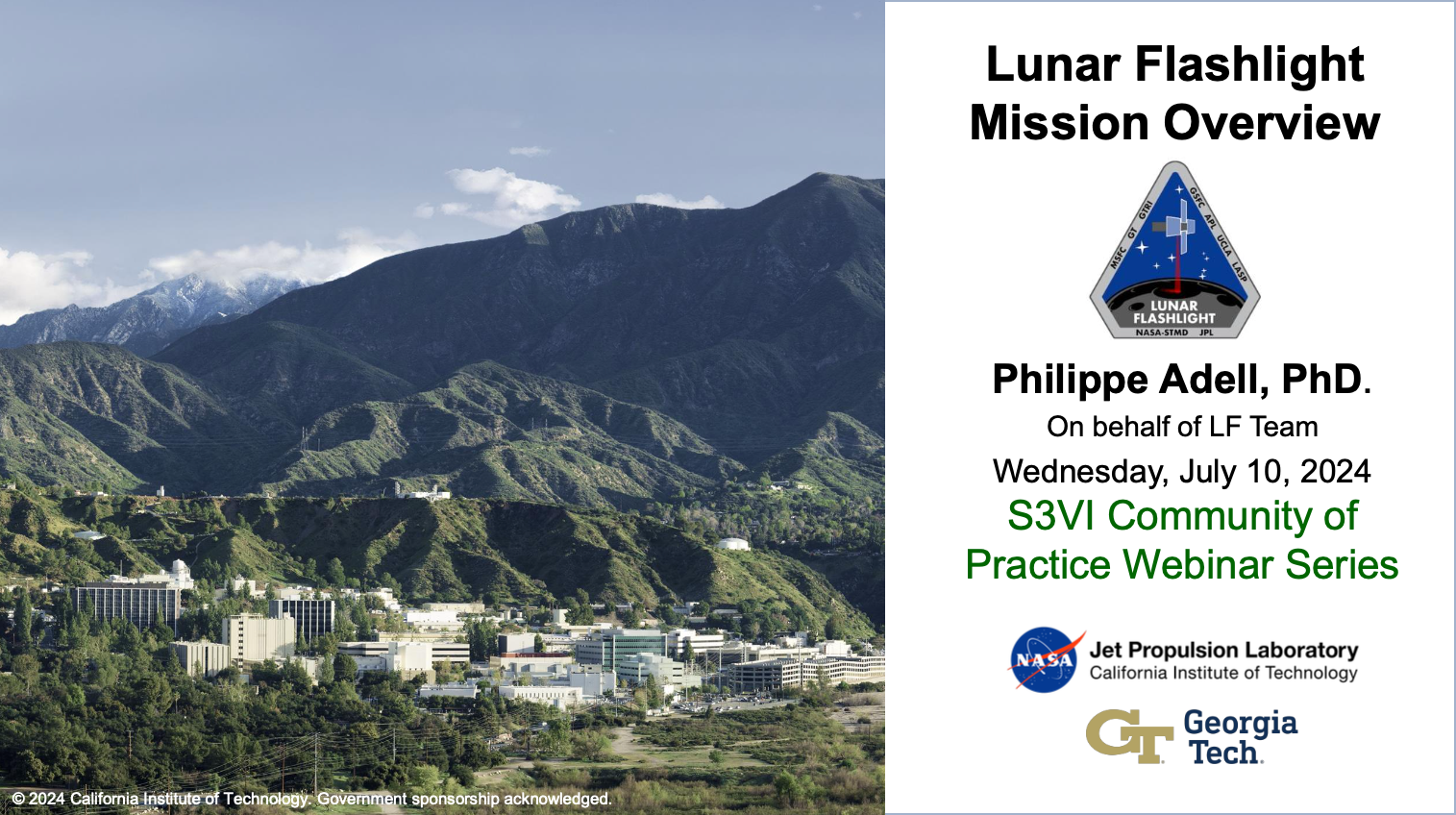 | Jul 10, 2024: Lessons Learned from the Lunar Flashlight MissionPhilippe Adell, Ph.D., NASA’s Jet Propulsion LaboratoryLunar Flashlight (LF), a first of its kind deep space 6U CubeSat technology demonstration mission consisted of four new technologies and a science goal of investigating the distribution of surface ice deposits at the Lunar South Pole. |
 | Mar 13, 2024: Lessons Learned from the SunRISE MissionRyan Martineau, Space Dynamics Laboratory, Logan, UtahSunRISE is a NASA Heliophysics mission using six identical 6U spacecraft in geosynchronous equatorial orbit (GEO) graveyard, about 400 kilometers above geosynchronous altitude. |
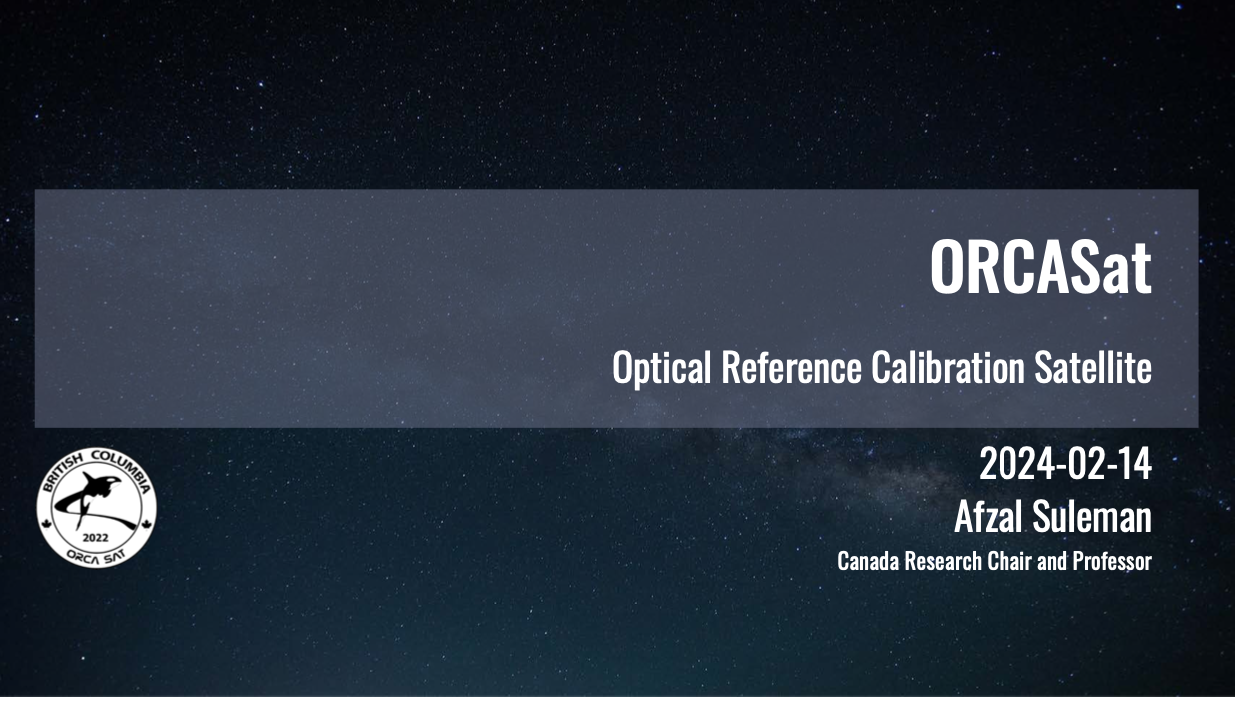 | Feb 14, 2024: Optical Reference Calibration CubeSat (ORCASat) Mission Lessons LearnedAfzal Suleman, University of Victoria, CanadaThe Optical Reference Calibration CubeSat (ORCASat) is a 2U CubeSat that was designed and built in-house by students at the University of Victoria. |
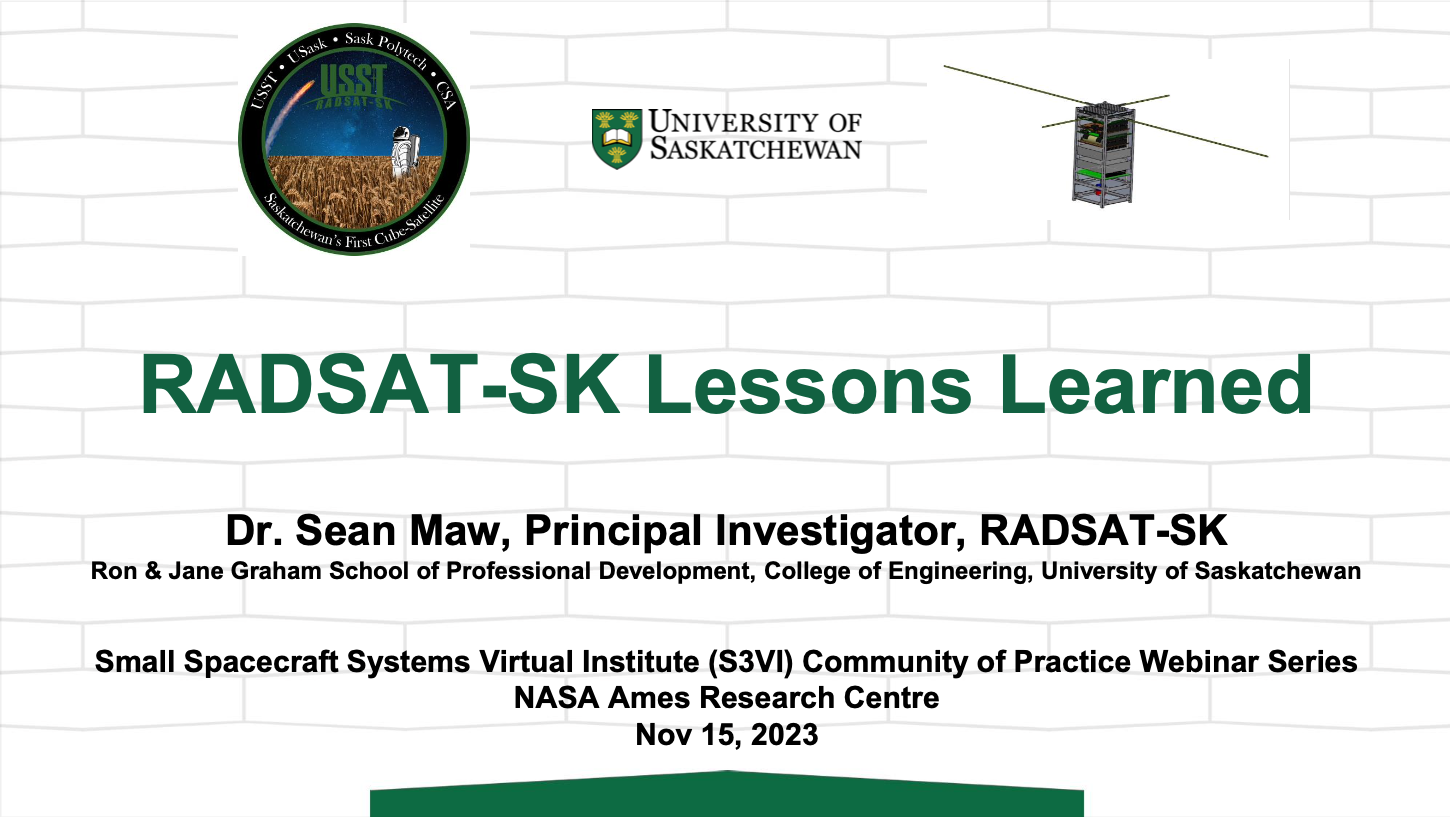 | Nov 15, 2023: Lessons Learned from a Primarily Undergraduate CubeSat Project (RADSAT-SK)Sean Maw, University of SaskatchewanIn 2018, the University of Saskatchewan and Saskatchewan Polytechnic were awarded a Canadian CubeSat Project (CCP) to develop a 2U CubeSat. |
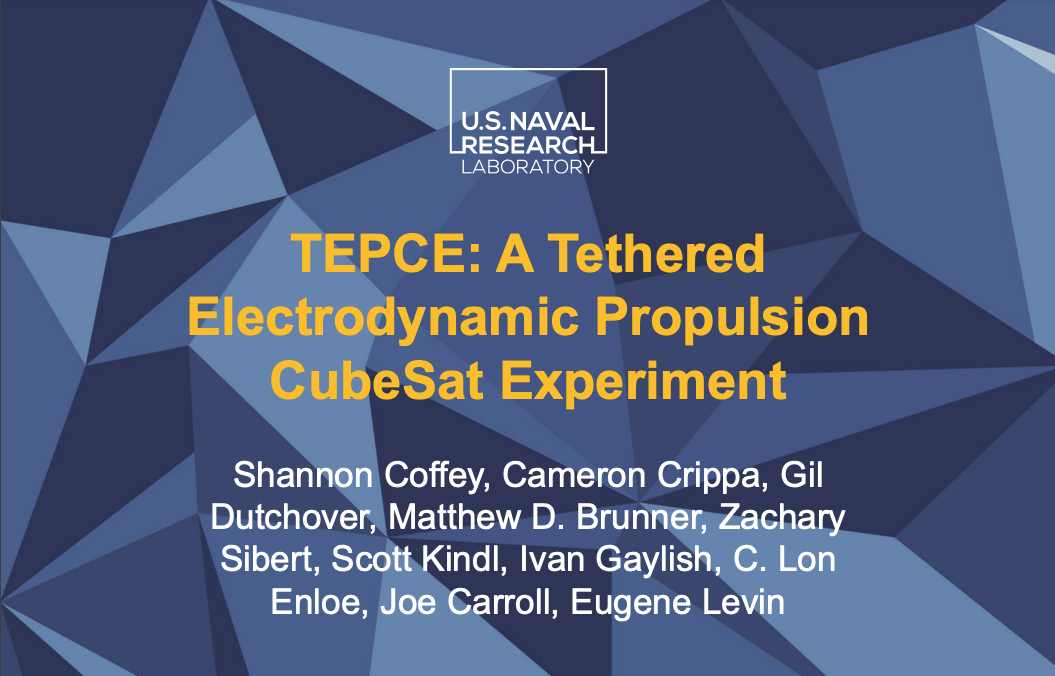 | Oct 18, 2023: Tether Electrodynamics Propulsion CubeSat Experiment (TEPCE)Matthew Brunner, US Naval Research LaboratoryTEPCE was a three-unit (3U) CubeSat that was developed to explore the feasibility of using electrodynamic propulsion for spacecraft. |
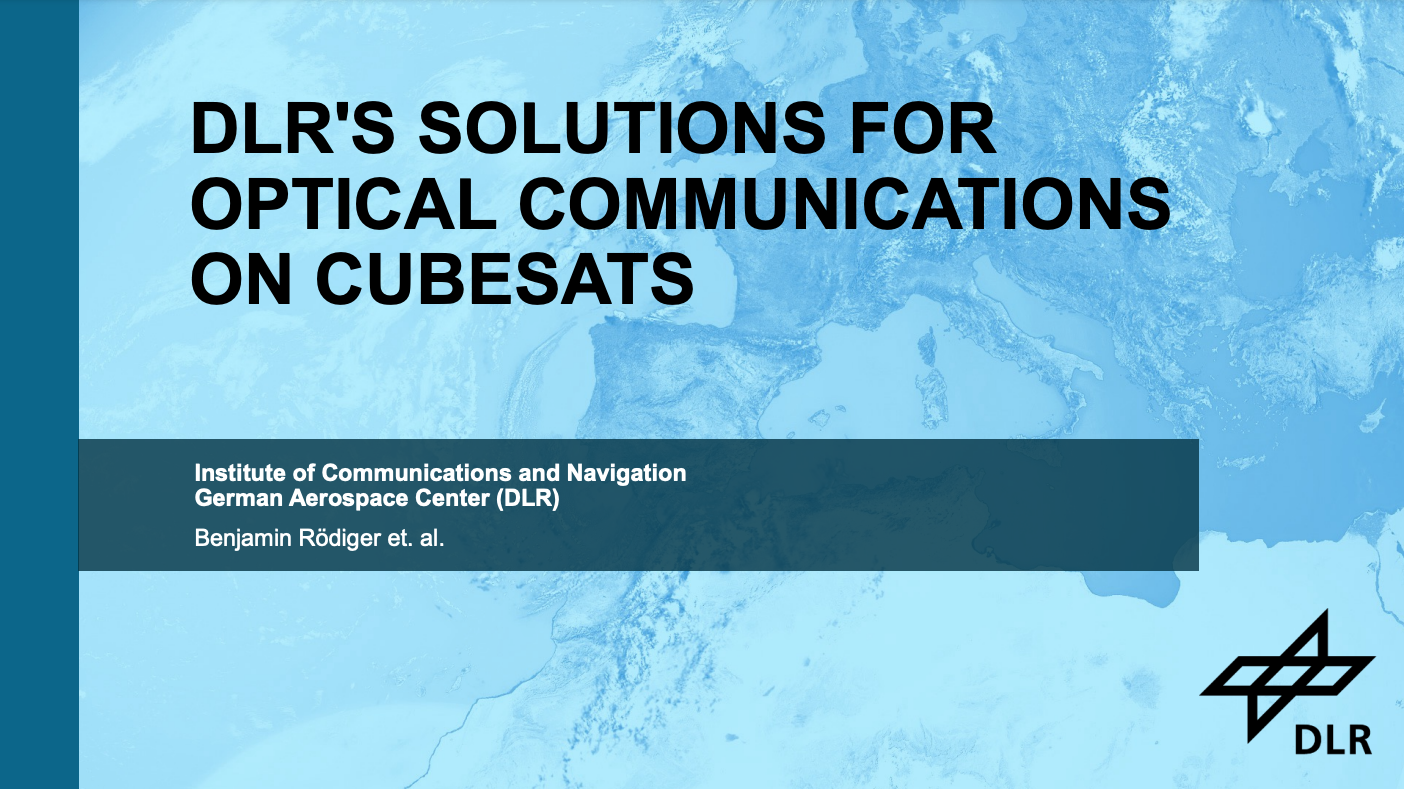 | Sep 13, 2023: DLR’s solutions for Optical Communication on CubeSatsBenjamin Roediger, Department of Optical Satellite Links, German Aerospace Center (DLR)Free Space Optical communication (FSO) overcomes the challenges of traditional RF-communication in space. |
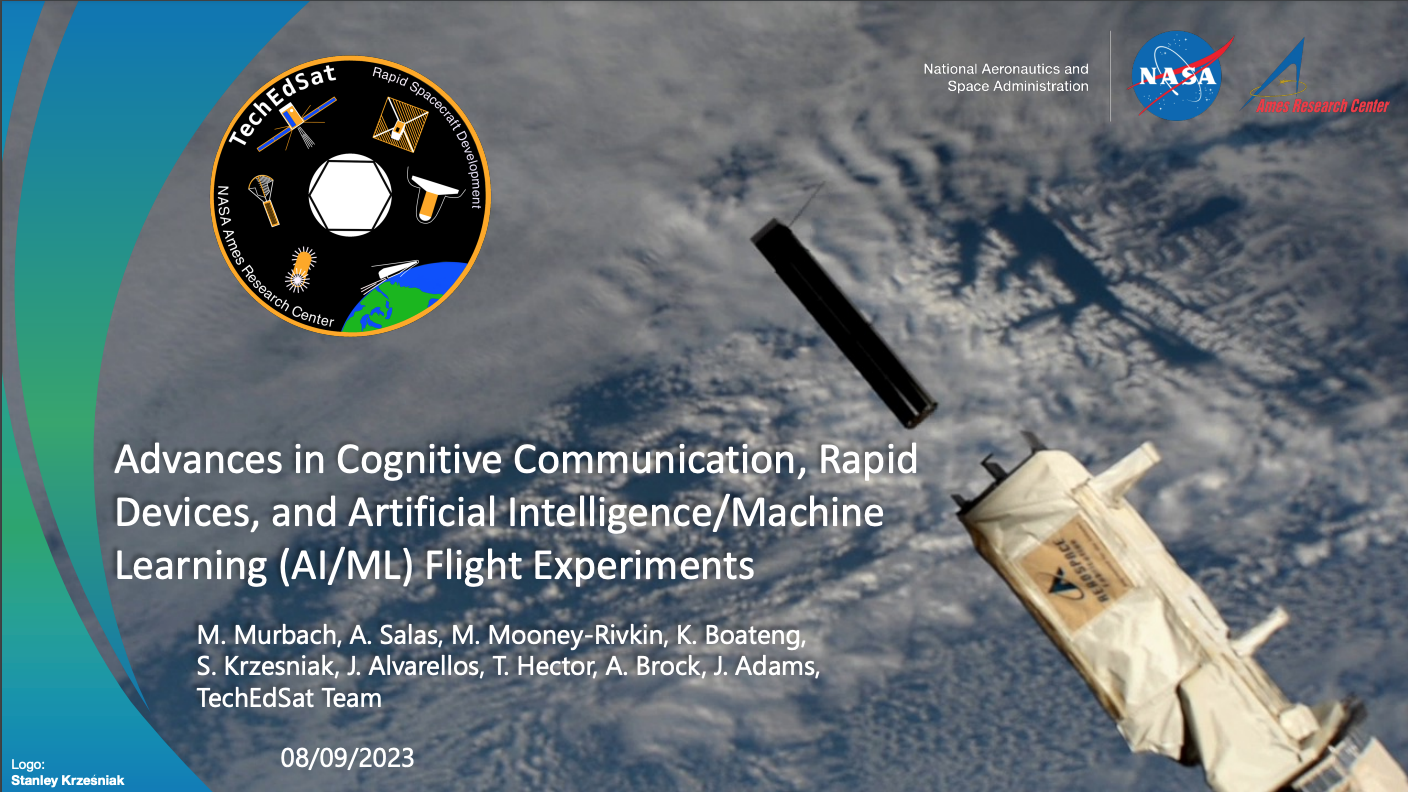 | Aug 9, 2023: NASA Short Talk Session #2Held at the 2023 Small Satellite Conference in Logan, Utah. |
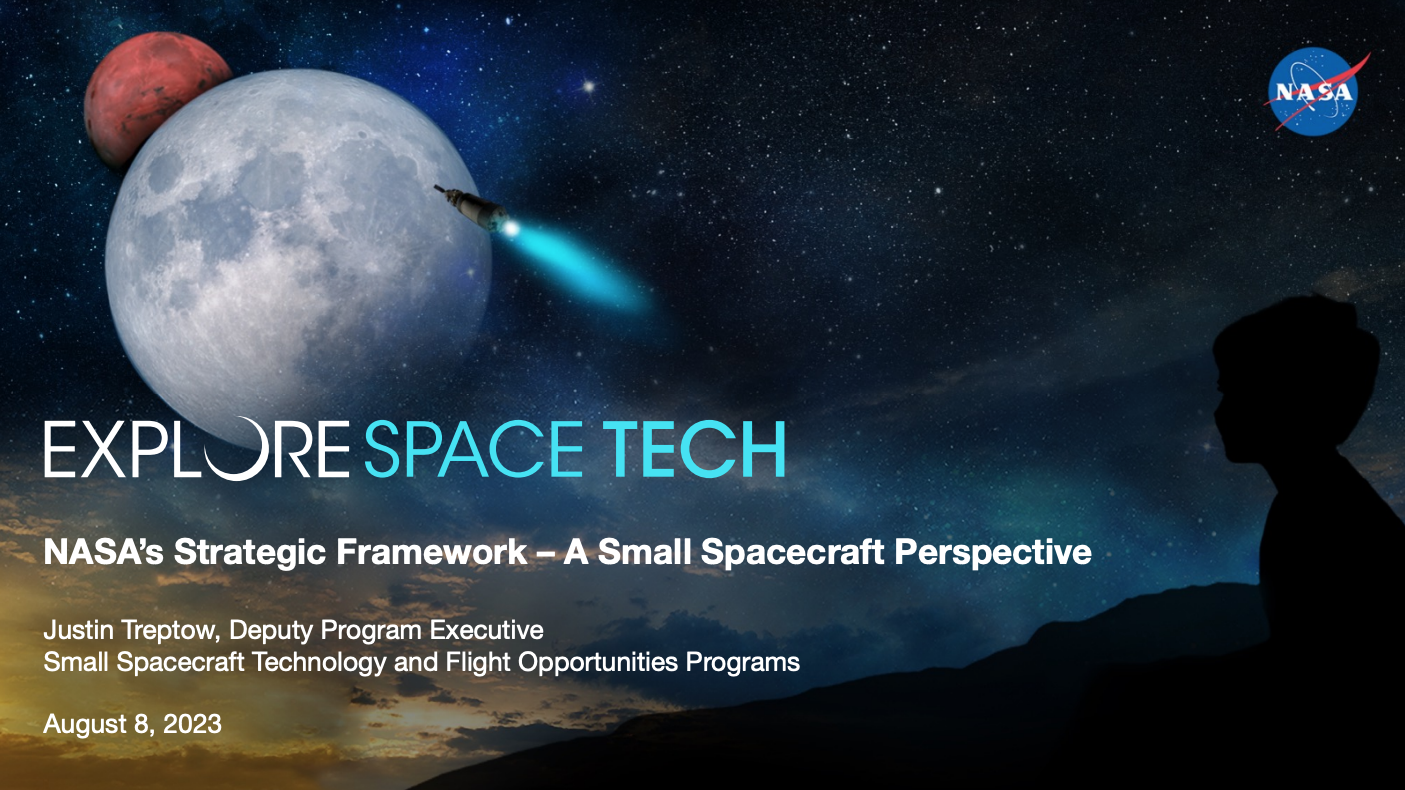 | Aug 8, 2023: NASA Short Talk Session #1Held at the 2023 Small Satellite Conference in Logan, Utah. |
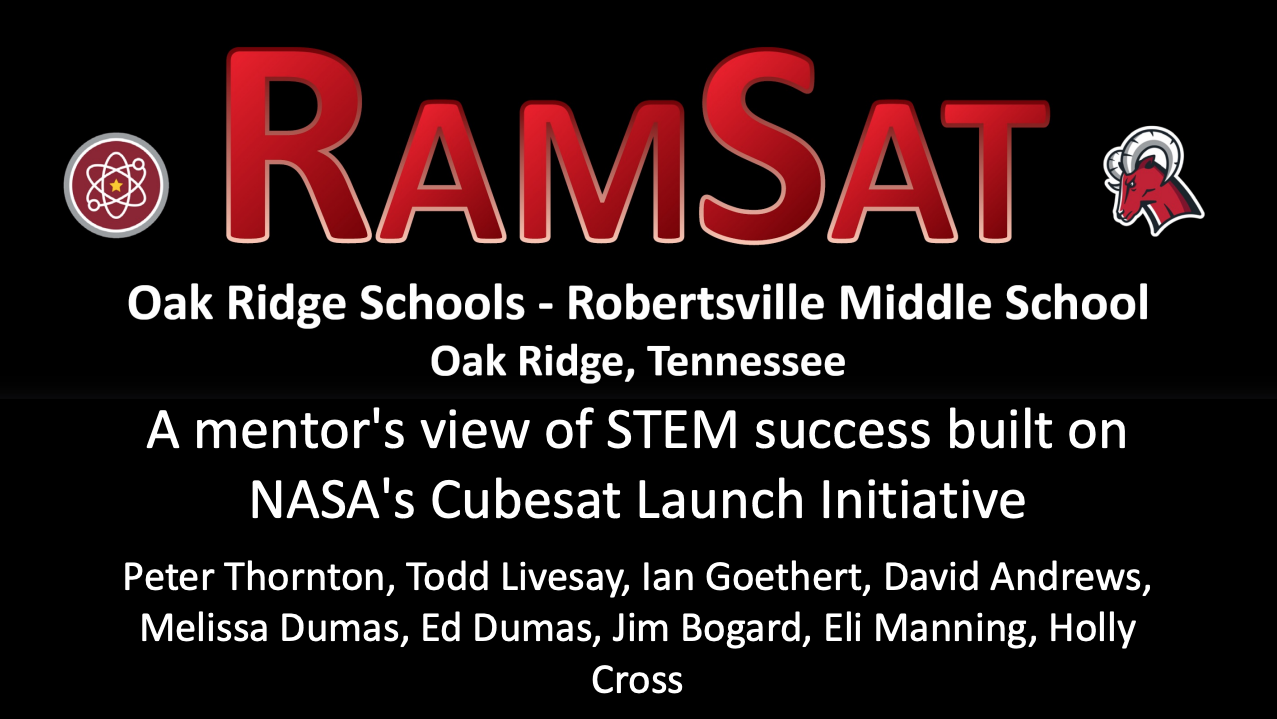 | Jul 12, 2023: Overview of RamSat MissionSpeaker: Peter Thornton, Oak Ridge National LaboratoryStudents and instructors at Robertsville Middle School, in the Oak Ridge Public Schools system of Oak Ridge, Tennessee, designed, built, and operated a 2U cubesat to study the regrowth of forests following catastrophic wildfire. |
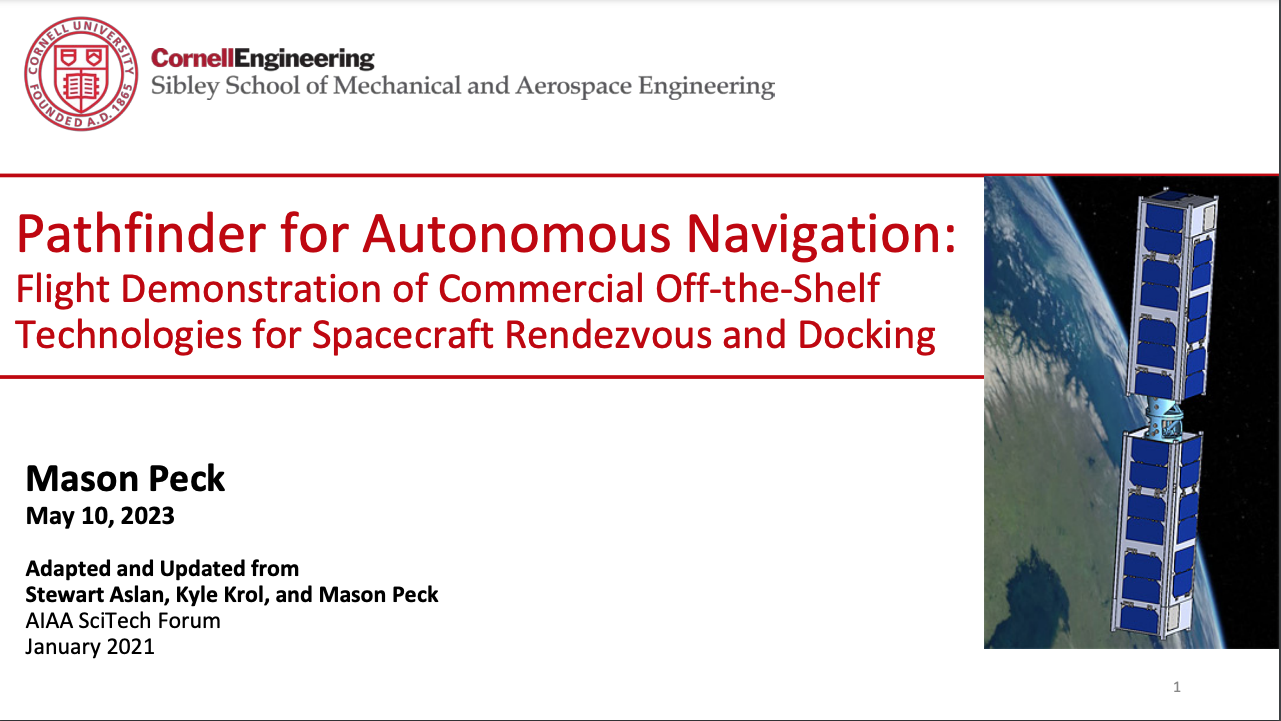 | May 10, 2023: The Pathfinder for Autonomous Navigation: Technologies and Lessons LearnedSpeaker: Mason Peck, Cornell UniversityThe Pathfinder for Autonomous Navigation (PAN) consists of two 3U CubeSats with 6DoF attitude and position control. The pair were capable of relative navigation with 3 cm accurate carrier-phase differential GPS technology. |
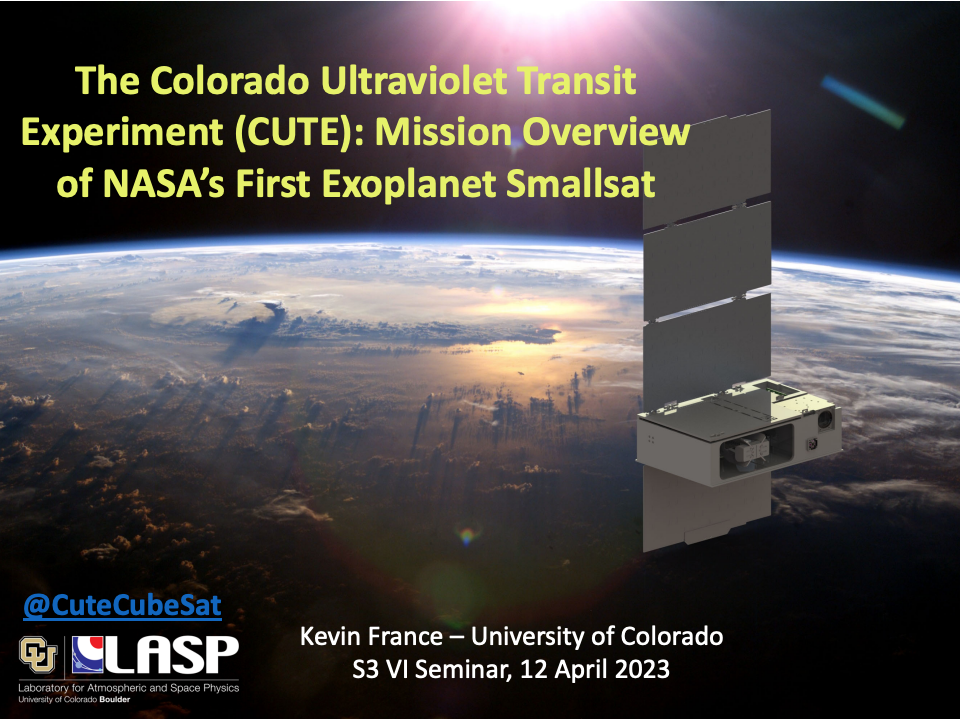 Spacerspacerspacerpacapserspacer | Apr 12, 2023: The Colorado Ultraviolet Transit Experiment: Chasing Big Planets with a Small SatelliteSpeaker: Kevin France, Laboratory for Atmospheric and Space Physics (LASP) at the University of Colorado BoulderAtmospheric escape is a process that affects the structure, composition, and evolution of many planets. The signatures of this escape are detectable on close-in, gaseous exoplanets orbiting bright stars, owing to the high levels of extreme-ultraviolet irradiance from their nearby parent stars. |
Wednesday, March 8, 2023
10:00AM-11:00AM Pacific Standard Time
An Overview and Status of the CAPSTONE Mission
Speaker: Elwood Agasid, NASA Ames Research Center
Wednesday, February 8, 2023
11:00AM-12:00PM Pacific Standard Time
Lessons Learned from the CuPID CubeSat
Speaker: Emil Atz, Boston University
Wednesday, January 11, 2023
10:00AM-11:00AM Pacific Standard Time
E. coli AntiMicrobial Satellite (EcAMSat): Results and Lessons Learned from NASA’s first 6U Biological CubeSat
Speaker: Matthew Lera, NASA Ames Research Center
Wednesday, December 14, 2022
10:00AM-11:00AM Pacific Standard Time
Electric Propulsion Qualification Guidelines and Best Practices for NASA Small Spacecraft Missions
Speaker: Thomas M. Liu, PhD, NASA Glenn Research Center
Wednesday, November 16, 2022
10:00AM-11:00AM Pacific Standard Time
Safe Space Conduct: NASA Best Practices for SmallSats
Speaker: Lauri Newman, NASA Goddard Space Flight Center
Wednesday, September 14, 2022
10:00AM-11:00AM Pacific Daylight Time
Shields-1 Dosimetry Measurements in Polar Low Earth Orbit
Speaker: D. Laurence Thomsen, NASA Langley Research Center
Wednesday, August 17, 2022
10:00AM-11:00AM Pacific Daylight Time
Liquid Lenses for Free Space Optical Communications
Speaker: Shreeyam Kacker, Massachusetts Institute of Technology, Space Telecommunications Astronomy and Radiation (STAR) Lab
Wednesday, July 13, 2022
10:00AM-11:00AM Pacific Daylight Time
SmallSat Technologies for Low-Cost Planetary Missions
Speaker: John Baker, NASA Jet Propulsion Laboratory
Wednesday, June 15, 2022
10:00AM-11:00AM Pacific Daylight Time
Low-Cost Mission Concepts for Mars Exploration
Speaker: Nathan Barba, NASA Jet Propulsion Laboratory
Wednesday, May 18, 2022
10:00AM-11:00AM Pacific Daylight Time
Phasing in COTS EEE Parts in NASA
Speaker: Jesse Leitner, Ph.D., NASA Goddard Space Flight Center
Wednesday, March 16, 2022
10:00AM-11:00AM Pacific Daylight Time
Radiometer Assessment using Vertically Aligned Nanotubes (RAVAN) Mission Overview
Speaker: William H. Swartz, Ph.D., Johns Hopkins University Applied Physics Laboratory
Wednesday, February 16, 2022
10:00AM-11:00AM Pacific Standard Time
Radar in a CubeSat (RainCube) Mission Overview
Speaker: Shannon Statham, Ph.D., NASA Jet Propulsion Laboratory
Wednesday, January 12, 2022
10:00AM-11:00AM Pacific Standard Time
IceCube: A Pathfinder of Submillimeter-Wave Remote Sensing on a CubeSat
Speaker: Dong Wu, Ph.D., NASA Goddard Space Flight Center
Wednesday, December 8, 2021
10:00AM-11:00AM Pacific Standard Time
Temporal Experiment for Storms and Tropical Systems – Demonstration (TEMPEST-D)
Speaker: Steven C. Reising, Colorado State University
Wednesday, November 10, 2021
10:00AM-11:00AM Pacific Standard Time
V-R3x Technology Demonstration Overview and Lessons Learned
Speaker: Anh Nguyen, NASA Ames Research Center
Wednesday, October 13, 2021
10:00AM-11:00AM Pacific Daylight Time
NASA Conjunction Risk Analysis Guidance
Speaker: Joshua Krage, NASA Headquarters
Wednesday, September 15, 2021
10:00AM-11:00AM Pacific Daylight Time
HaloSat – A CubeSat that Studied the Halo of the Milky Way
Speaker: Philip Kaaret, University of Iowa
Wednesday, August 18, 2021
10:00AM-11:00AM Pacific Daylight Time
Integrated Microfluidic Bioanalytical Systems for CubeSats: Growing and Monitoring Microbial Cultures in Outer Space
Speakers:
Diana Ly, NASA Ames Research Center
Macarena Parra, NASA Ames Research Center
Tony Ricco, Stanford University
Wednesday, July 14, 2021
10:00AM-11:00AM Pacific Daylight Time
The Challenges of Managing Small Space Flight Projects
Speaker: Butler Hine, NASA Ames Research Center
Wednesday, June 16, 2021
10:00AM-11:00AM Pacific Daylight Time
The CubeSat Radiometer Radio Frequency Interference Technology Validation (CubeRRT) Mission: Objectives, Accomplishments, and Lessons Learned
Speaker: Christopher D. Ball, PhD, The Ohio State University
Wednesday, May 19, 2021
10:00AM-11:00AM Pacific Daylight Time
Science Missions with CubeSats Sure are Fun! The Story of the MinXSS CubeSats
Speaker: Thomas Woods, Laboratory for Atmospheric & Space Physics (LASP), University of Colorado Boulder
Wednesday, April 21, 2021
10:00AM-11:00AM Pacific Daylight Time
Opportunities for Small Sat Missions with the New Near Space Network
Speaker: Obadiah Kegege, Ph.D., NASA Goddard Space Flight Center
Wednesday, March 17, 2021
10:00AM-11:00AM Pacific Daylight Time
Wikipedia for SmallSats: The SSRI Knowledge Base
Speaker: Robbie Robertson, Ph.D., Sedaro Technologies
Wednesday, February 10, 2021
10:00AM-11:00AM Pacific Standard Time
No More Lost in Space: Low-SWAP ID and Tracking Aids
Speaker: Barbara M. Braun, The Aerospace Corporation
Wednesday, January 20, 2021
10:00AM-11:00AM Pacific Standard Time
Radiation Hardness Drivers for Mission Success – What We Have Learned
Speaker: Michael Campola, NASA Goddard Space Flight Center
Wednesday, November 18, 2020
10:00AM-11:00AM Pacific Standard Time
Space System Protection Requirements
Speakers:
Joshua Krage, NASA Headquarters
David Adams, NASA Goddard Space Flight Center
Wednesday, October 14, 2020
10:00AM-11:00AM Pacific Daylight Time
Seeker Overview and Mission 1 Review– A New Development Approach for In-Space Inspectors
Speaker: Samuel M. Pedrotty, NASA Johnson Space Center
Wednesday, September 16, 2020
10:00AM-11:00AM Pacific Daylight Time
Emerging Low Toxicity “Green” Chemical Propulsion Technologies for SmallSats
Speaker: Daniel P. Cavender, Marshall Space Flight Center
Wednesday, August 26, 2020
10:00AM-11:00AM Pacific Daylight Time
Navigating SmallSat Development: Where to Begin and What to Expect
Speaker: Dr. Charles D. Norton, NASA Headquarters
Wednesday, July 15, 2020
10:00AM-11:00AM Pacific Daylight Time
Smallsat and Systems Engineering
Speaker: Pauline Faure, California Polytechnic State University
Wednesday, June 10, 2020
10:00AM-11:00AM Pacific Daylight Time
NASA and Smallsat Cost Estimation Overview and Model Tools
Speaker: Michael Saing, Jet Propulsion Laboratory, California Institute of Technology
Wednesday, May 20, 2020
10:00AM-11:00AM Pacific Daylight Time
The Mobile CubeSat Command and Control (MC3) ground station network
Speaker: Giovanni Minelli Ph.D., The Space Systems Academic Group, Naval Postgraduate School
Wednesday, April 15, 2020
10:00AM-11:00AM Pacific Daylight Time
Hydrogen Peroxide Vapor for Small Satellite Propulsion
Speaker: Brandie L. Rhodes, Ph.D., The Aerospace Corporation
Wednesday, March 18, 2020
10:00AM-11:00AM Pacific Daylight Time
Topics in Advanced Communication and Design in the TES-n Nanosatellite Flight Series: Use of Iridium as a Primary Command/Control Gateway
Speaker: Marcus S. Murbach, NASA Ames Research Center
Wednesday, February 12, 2020
10:00AM-11:00AM Pacific Standard Time
An Overview of NASA Space Protection
Speaker: Joshua Krage, NASA Goddard Space Flight Center
Wednesday, January 15, 2020
10:00AM-11:00AM Pacific Standard Time
Small Spacecraft: Spectrum Operations and Authorization
Speaker: William D. Horne, Senior Spectrum Technology Advisor, NASA Headquarters
Wednesday, December 11, 2019
10:00AM-11:00AM Pacific Standard Time
Small Satellites Demand Innovation in Reliability
Speaker: Harald Schone, Jet Propulsion Laboratory, California Institute of Technology
Thursday, November 14, 2019
10:00AM-11:00AM Pacific Standard Time
U.S. Naval Academy Small Satellite Program’s Story – Lessons Learned and Un/common Practices
Speakers: Jin S. Kang and Robert Bruninga, Aerospace Engineering Department, United States Naval Academy
Wednesday, July 17, 2019
10:00AM-11:00AM Pacific Daylight Time
Software: The Overlooked Glue that Holds CubeSats Together
Speaker: John Bellardo, California Polytechnic State University (Cal Poly)
Wednesday, May 15, 2019
10:00AM-11:00AM Pacific Daylight Time
Computing Space Mission Geometry Using NASA’s SPICE System
Speaker: Charles Acton, Jet Propulsion Laboratory, California Institute of Technology
Wednesday, March 13, 2019
10:00AM-11:00AM Pacific Daylight Time
Small Satellite Industrial Base Study: An Overview and Interim Update
Speaker: Allyson Yarbrough, The Aerospace Corporation
Webinar Topic Suggestions
Please contact the S3VI agency-smallsat-institute@mail.nasa.gov to suggest topics and speakers for this webinar series. Speakers from NASA centers, partner agencies and NASA-funded universities, as well as topics of general interest to the small spacecraft community will be considered.
Community of Practice Presentation Archive
- Near Earth Network (NEN) CubeSat Communications, Scott Schaire, NASA Goddard Space Flight Center (January 2017)
- Small Spacecraft Reliability, John W. Evans, NASA Office of Safety and Mission Assurance and Tony DiVenti, NASA Goddard Space Flight Center, Office of Safety and Mission Assurance (March 2016)
- Mission Success in CubeSats: Improving the Data Collection Work to Date, Michael Swartwout, Saint Louis University (March 2016)
- Risk-based SMA for CubeSats, Jesse Leitner, NASA Goddard Space Flight Center (December 2016)














